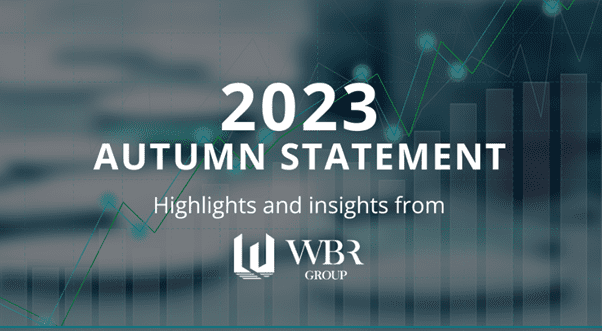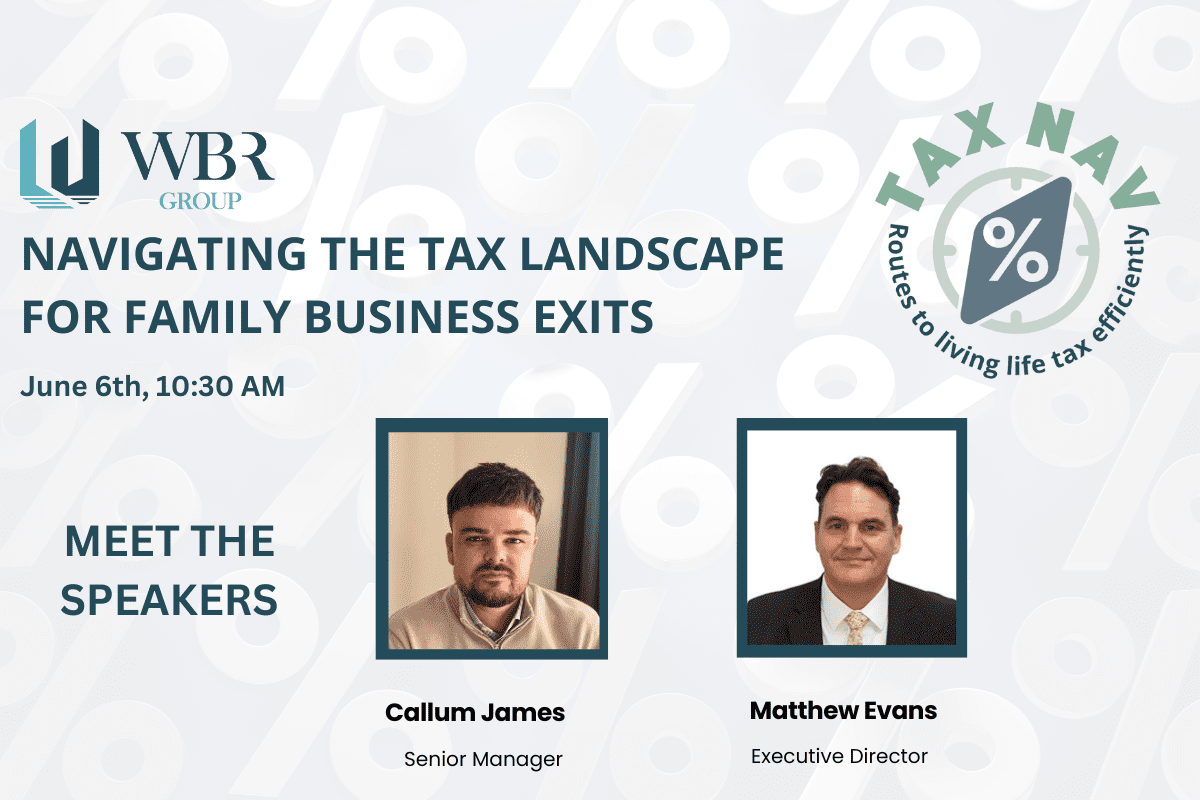The Chancellor, Jeremy Hunt, delivered his Autumn Statement speech. This is our summary of the changes that are most likely to affect our clients: SMEs, Entrepreneurs, Family Businesses and those with SSAS pensions
COMMENTARY
With the Government running low in the polls and a general election on the horizon, the pre-statement speculation had been about which taxes would be cut, as opposed to which would be increased. Well, the Chancellor left it late for the big reveal!
Those who had bet on Inheritance Tax being reduced or abolished were in for a disappointment, possibly due to a bumper IHT “Covid Yield” for the Chancellor last year.
Instead, the main headline act was reductions to National Insurance. From 6 January 2024, there is:
- A 2% decrease in Employee National Insurance Contributions (NIC) from 12% to 10%,
- The abolition of class 2 NIC, and
- A 1% drop in class 4 NIC.
Let’s take a look at the main changes applicable to our clients.
1. IMPACT FOR PENSIONS
General Pension Reforms
The Chancellor announced a plan to support some new investment vehicles, tailored to the needs of pension schemes, focused on allowing investment into the UK’s innovative companies specialising in UK science and technology.
The Government also announced a comprehensive package of pension reforms, together with a number of new consultations. The direction of travel in recent years has been to try to move away from the situation where individuals have a number of different small pension pots, (each with scheme fees), and instead to allow individuals to have a single pot. Many of today’s announcements were in the same vein, but there are also some proposed relaxations to the Defined Benefit Investment Rules.
Changes to the legislation
The change that we had hoped for was clarity on how the abolition of the lifetime allowance would be coded into the legislation. The legislation has now been published and, as always, the devil is in the detail, so will take some time to review. It appears that many of the changes are as we had expected, although we did note the introduction of a new “overseas transfer allowance” for QROPS.
Impact on SSAS pensions
There appear to be no changes to the SSAS pension rules.
Contribution Limits
Defined Contribution Scheme – the maximum annual contribution is still £60,000.
Defined Benefit Scheme – the maximum annual employer contribution is still likely to be between £150,000 and £180,000 per member per year, depending on actuarial considerations. The amount is based on an actuarial calculation of the contribution required to receive an annual pension of £3,750 (1/16th of £60,000).
The three year carry forward rules for contributions to either scheme remain unchanged.
When an individual has flexibly accessed a defined contribution pension scheme, the tax relief on future pension contributions is restricted. This Annual Allowance – the MPAA – remains at £10,000.
2. IMPACT FOR BUSINESS OWNERS, SMEs AND FAMILY BUSINESSES
Business Taxes
The Corporation Tax rate will remain at 25% for companies with annual profits of £250,000 or more.
The Chancellor has extended the ‘Full Expensing’ rules, which give taxpayers, both companies and unincorporated businesses:
- A 100% first-year allowance for main rate expenditure — known as full expensing
- A 50% first-year allowance for special rate expenditure.
This was originally only to apply from 1 April 2023 to March 2026 but has been made permanent.
Plastic Packaging Tax rates are increasing from £210.82 per tonne to £217.85 per tonne from 1 April 2024. There are also increases to Tonnage Tax and a number of other similar taxes.
Research and Development. The rules have been reformed to combine the current RDEC and R&D SME scheme into a merged scheme. The measure establishes an “above the line credit” that allows companies to claim for their qualifying R&D costs, including contracted out R&D, and it incorporates the more generous SME scheme PAYE and National insurance contributions cap. It also includes restrictions on relief for overseas expenditure which will come into effect for accounting periods beginning on or after 1 April 2024.
The rate offered under the merged scheme will be implemented at the current RDEC rate of 20%.
The notional tax rate applied to loss-makers in the merged scheme will be the small profits rate of 19%, rather than the 25% main rate set in the current RDEC.
The film, TV and video games reliefs are being reformed to follow the same approach as the new R&D rules.
Further detail has been provided about the Investment Zones programme, with four new areas added: West Midlands, East Midlands, Wrexham and Greater Manchester.
The National Living Wage will increase for individuals aged 23 and over from £10.42 to £11.44 an hour from 1 April 2024, with the rate now applying to people aged 21 and above.
There are some amendments to the Construction Industry Scheme (CIS), extending one of the grounds for immediate cancellation of gross pay status.
Personal Taxes
As we expected, there was no mention of any changes to the personal allowance, which remains frozen at £12,570, and the threshold at which individuals will become liable for the higher rate of 40% will remain at £50,270.
The additional rate of income tax (45%) remains at the rate of £125,140.
The Dividend Allowance that applies from 6 April 2024 is £500.
The Capital Gains Allowance that applies from 6 April 2024 is £3,000.
Stamp Duty Land Tax rates remain as before, with the nil rate band being £250,000 (£425,000 for first time buyers).
When considering sale of a business, there appears to be no change to the rules relating to Employee Ownership Trusts, Family Buy Outs, Substantial Shareholding Exemption, Investment Companies, Merger and Demerger Rules.
There had been speculation before the Autumn Statement that Inheritance Tax might be scrapped or changed. In addition, the Government would be looking to remove the CGT free uplift on shares or assets that qualify for Business Property Relief. Neither of these have transpired.
EIS and SEIS limits remain as before, although the “sunset clause” (relating to the date when the schemes are due to end) have all been extended to 6 April 2035.
CONCLUSION
It was clear from the outset that this Autumn Statement was a pre-election opportunity for the Chancellor to rescue his party from the current slump in the polls. Whether it is too little too late remains to be seen.
It should also be noted that the Labour party has already made clear its opposition to some of the recent changes, such as the pensions Lifetime Allowance, and would be making sweeping changes to the tax rules for Non-Domiciled individuals.
We are aware from our clients that there is a lot of concern about whether the CGT rates would also be increased by a future Labour Government to match the income tax rates, which is particularly worrying for those looking to exit their businesses. In the right circumstances, pre-election planning might be considered for those that are worried about this aspect.




